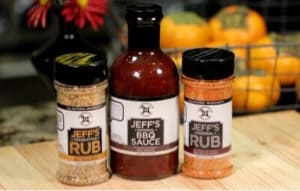I just noticed this forum. I'm not a drinker, but I've dabbled in brewing my own ginger ale. My old man does a pretty wicked root beer, and I've had moderate success with my ginger ale but I want to take it to the next level because I really love a well crafted ginger ale. I'm sure some of you home brewers would have some insight for me and maybe you'd like to share.
My biggest limitation has been the yeast taste and I can't figure out how to get rid of it. To brew my ginger ale, I basically mix the whole recipe together, then bottle the whole mixture, yeast and all. Then it goes in the warm garage for the yeast and sugar to do their thing to produce carbonation. Once it's adequately carbonated it goes into the refrigerator, yeast and all to neutralize the yeast and stop the fermentation process.
When it comes time to drink it, you've got to be real careful about how you handle the bottle when you're pouring it. Move it around too much and you'll stir the yeast up and get a real yeast flavor in your drink, which is not my favorite thing on the planet. Plus you always want to leave the bottom 1/2 inch in the bottle. You drink the dregs and you're asking for trouble. Anyway, I would love to be able to drink the whole thing straight from the bottle because drinks always seem to taste better out of the bottle. But you really can't do that with this stuff on account of the yeast factor.
I guess ultimately my question is how do you get carbonation in beer? If I understand the process right, you leave the yeast in the mix during the fermentation process, but then bottle it without letting the yeast get into the mix. So how does it get carbonated from there? (Keep in mind that I'm a good Mormon boy and have tasted beer exactly twice in my life and I don't even remember what it was like, so I couldn't be much more ignorant about it). And is there any way to cross-apply that process to non-alcoholic drinks?
If I can figure out how to carbonate it, but bottle it without including all the yeast it will be pretty awesome. That'd elevate my summer Q game in a huge way. And I'd love to figure out how to do that with a natural brewing process instead of simply using pre-carbonated water, if that can even be done with yeast. It seems like the harder it is to do something, the more satisfying the results are.
Also, I've found brewing yeasts online and have used both dark ale and champagne yeasts with my ginger ale in the past. Can someone explain the difference, and if there are other options that you think might complement a ginger ale better than those, I'm all ears. My recipe uses natural ginger root, sugar in the raw, lemon and lime juice as the main flavor agents, if that helps. I'm thinking about tossing in a light hint of cinnamon my next go around to see how that works.
My biggest limitation has been the yeast taste and I can't figure out how to get rid of it. To brew my ginger ale, I basically mix the whole recipe together, then bottle the whole mixture, yeast and all. Then it goes in the warm garage for the yeast and sugar to do their thing to produce carbonation. Once it's adequately carbonated it goes into the refrigerator, yeast and all to neutralize the yeast and stop the fermentation process.
When it comes time to drink it, you've got to be real careful about how you handle the bottle when you're pouring it. Move it around too much and you'll stir the yeast up and get a real yeast flavor in your drink, which is not my favorite thing on the planet. Plus you always want to leave the bottom 1/2 inch in the bottle. You drink the dregs and you're asking for trouble. Anyway, I would love to be able to drink the whole thing straight from the bottle because drinks always seem to taste better out of the bottle. But you really can't do that with this stuff on account of the yeast factor.
I guess ultimately my question is how do you get carbonation in beer? If I understand the process right, you leave the yeast in the mix during the fermentation process, but then bottle it without letting the yeast get into the mix. So how does it get carbonated from there? (Keep in mind that I'm a good Mormon boy and have tasted beer exactly twice in my life and I don't even remember what it was like, so I couldn't be much more ignorant about it). And is there any way to cross-apply that process to non-alcoholic drinks?
If I can figure out how to carbonate it, but bottle it without including all the yeast it will be pretty awesome. That'd elevate my summer Q game in a huge way. And I'd love to figure out how to do that with a natural brewing process instead of simply using pre-carbonated water, if that can even be done with yeast. It seems like the harder it is to do something, the more satisfying the results are.
Also, I've found brewing yeasts online and have used both dark ale and champagne yeasts with my ginger ale in the past. Can someone explain the difference, and if there are other options that you think might complement a ginger ale better than those, I'm all ears. My recipe uses natural ginger root, sugar in the raw, lemon and lime juice as the main flavor agents, if that helps. I'm thinking about tossing in a light hint of cinnamon my next go around to see how that works.




